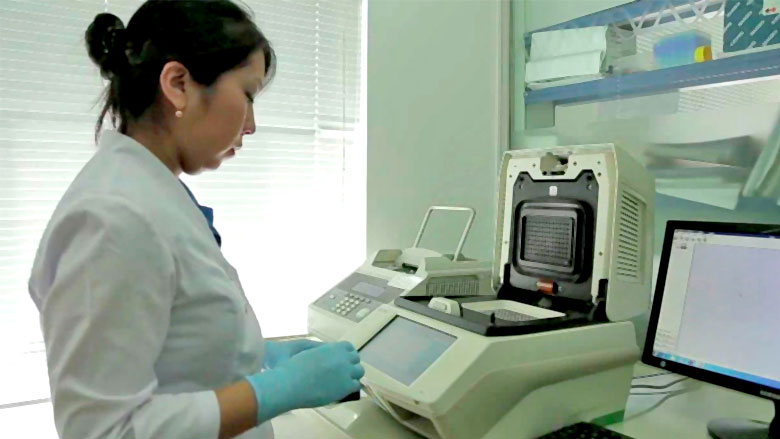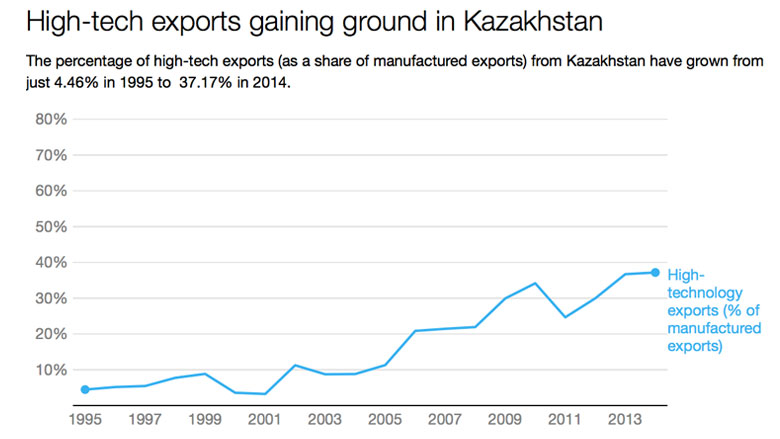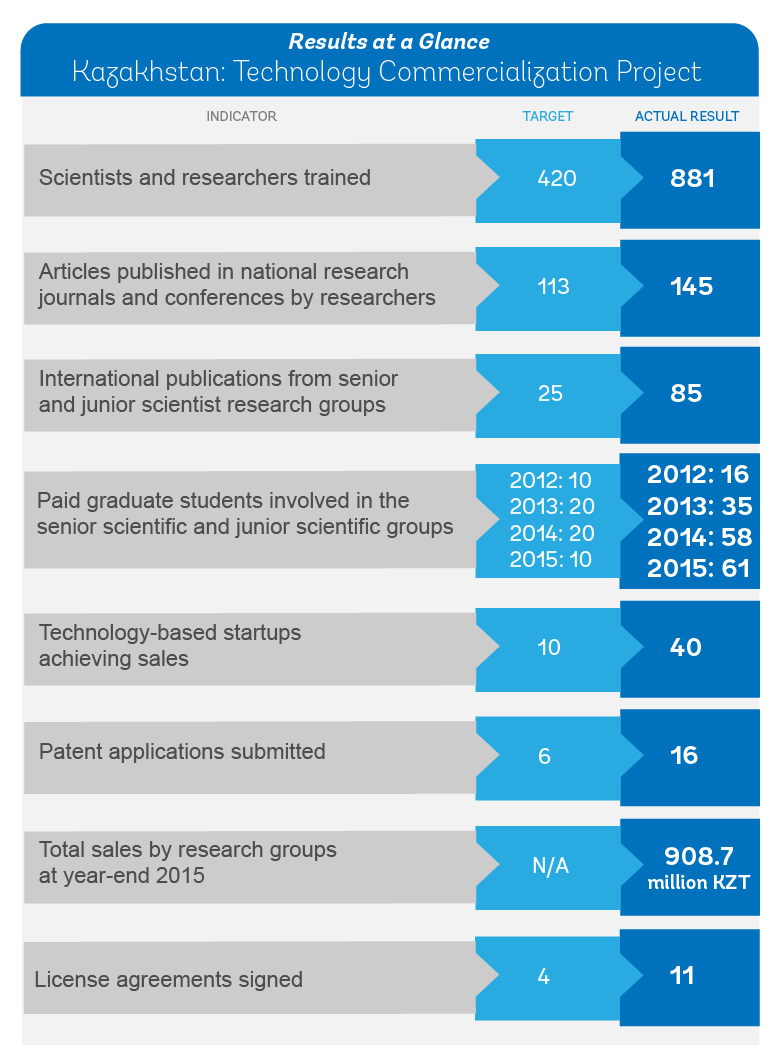WASHINGTON, December 20, 2016—What does it take for an economy to transform itself from a supplier of raw materials to an exporter of ideas, science, and technological advancement? Certainly, the tools to develop scientific expertise – including training and modern laboratory equipment. But such a drastic shift also requires the know-how to get new ideas out of the lab and into the market.
In 2008, commercializing innovations was proving to be a major obstacle in Kazakhstan, a country that emerged from the Soviet Union with a well-educated and scientifically literate labor force but outdated scientific infrastructure. Most scientists in the country simply did not have experience finding investors, pushing their ideas into production, or linking their innovations to global markets.
This backdrop provided great potential for partnership with the World Bank Group’s Trade & Competitiveness Global Practice, a joint practice of the World Bank and International Finance Corporation (IFC).
Under the Technology Commercialization Project, which began in January of 2008, The Government of Kazakhstan sought World Bank Group expertise in two particular areas:
- Achieving scientific excellence: The project aimed to rebuild and restructure research and development in Kazakhstan. It offered merit-based grant funding to scientists and junior researchers to help strengthen Kazakhstan’s science base, enable people with great ideas to develop them further, and grow a new generation of young scientists.
- Linking science to markets: Technical assistance - in business planning and communication, venture capital and financing, and intellectual property – helped scientists develop the necessary expertise to sell their innovative products in domestic and international markets. The project also established a Technology Commercialization Office that brokers partnerships between Kazakhstani scientists and local and international markets and generates sales.
The World Bank Group provided US$11.35 million toward these efforts, supporting the Government of Kazakhstan’s total budget of US$65.2 million.
“Prior to receiving this grant, our team consisted entirely of scientists, and our knowledge about commercialization was superficial,” says Yelena Zholdybayeva, a representative of General Genetics, one of the project grantees. “The program provided really helpful workshops on commercialization. Since the project started, I have begun to understand the business side of our startup in greater detail, including what products or concepts can be commercialized.”
The results have been encouraging: the project kick started 65 new startups, 40 of which reached first sales by the close of the project in 2015. Independent international boards selected grantees through several rounds of merit-based applications, where funding was provided for up to three years to cover all phases of scientific projects including research, development, proof of concept, and prototypes.
“The project beneficiaries generated an impressive amount of change leaders and seeds of new innovation culture in the country,” says Karen Grigorian, Senior Private Sector Specialist at the World Bank Group and project co-lead. “These entrepreneurs are acting as first movers in the technology commercialization space in Kazakhstan.”
The new startups operated in a variety of sectors relevant to the Kazakhstani context: agriculture, gas, oil, robotics, and medicine and pharmaceuticals, among others. Grant-funded projects signed 11 license agreements, and had five international patent agreements approved by 2015.
“When people think of funding for technology and innovation, a default first thought is computers and information technology. But this project stretched far beyond these basic elements,” explained Lisa Kaestner, a Practice Manager for Trade & Competitiveness at the World Bank Group. “Not only did this project generate new products and ideas in a huge range of industries, it also helped rebuild capabilities of Kazakh research and development.”
By 2015, companies and products that arose from the Technology Commercialization Project achieved 908.7 million KZT (approximately US$2.6 million) in sales, with more expected in the future as the startups gain traction.


